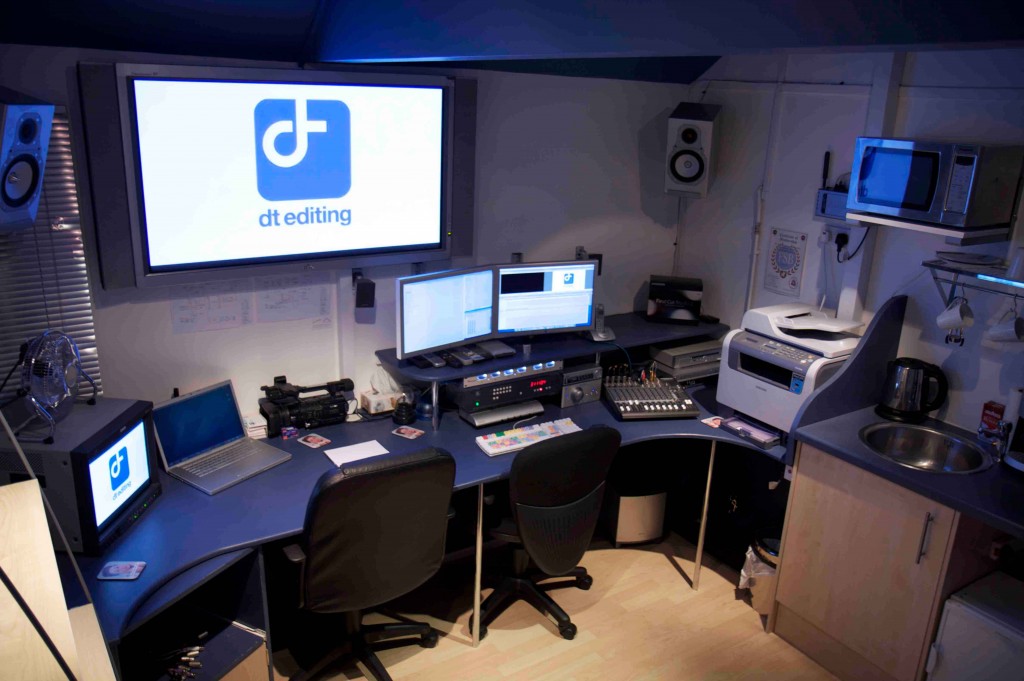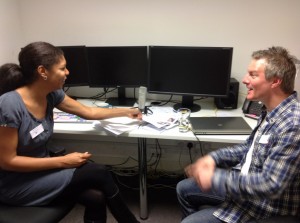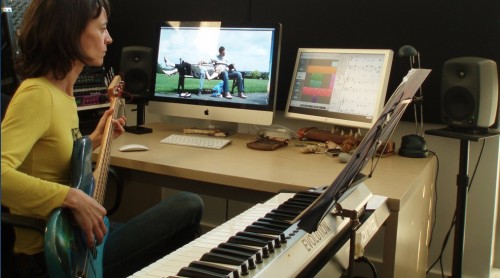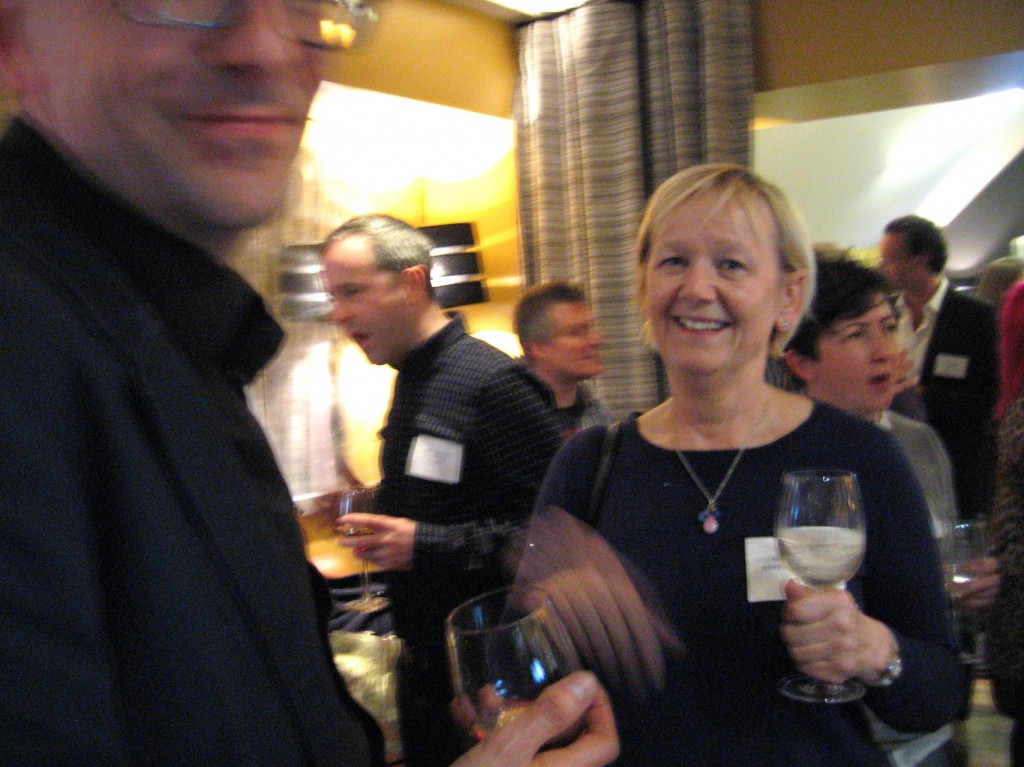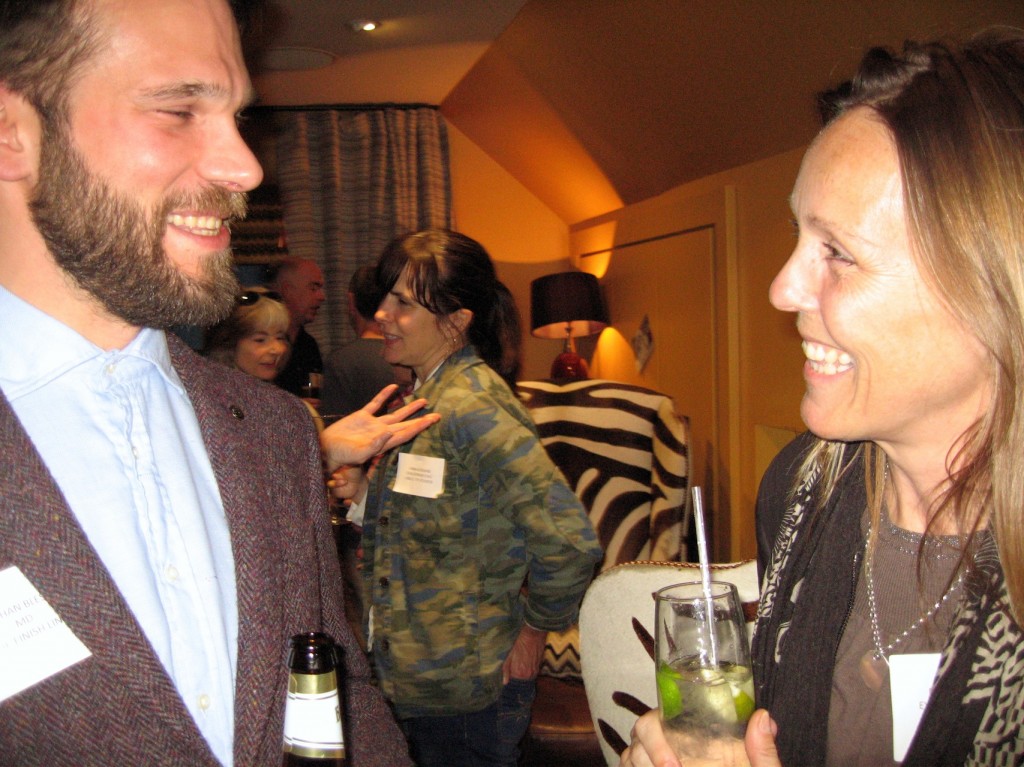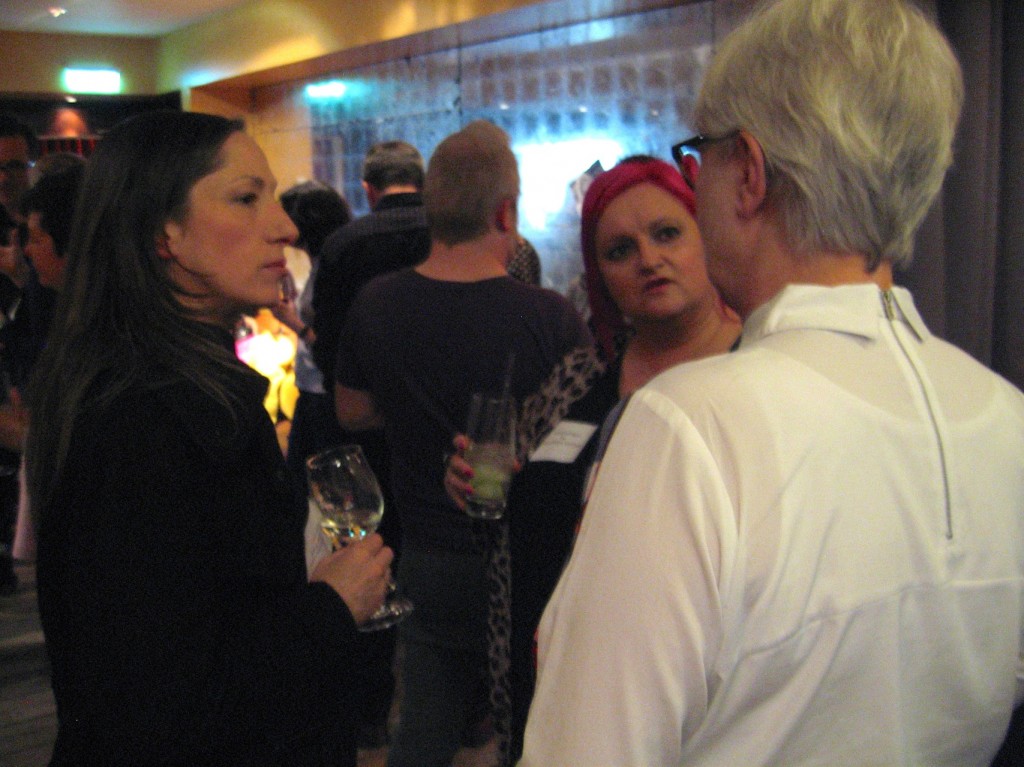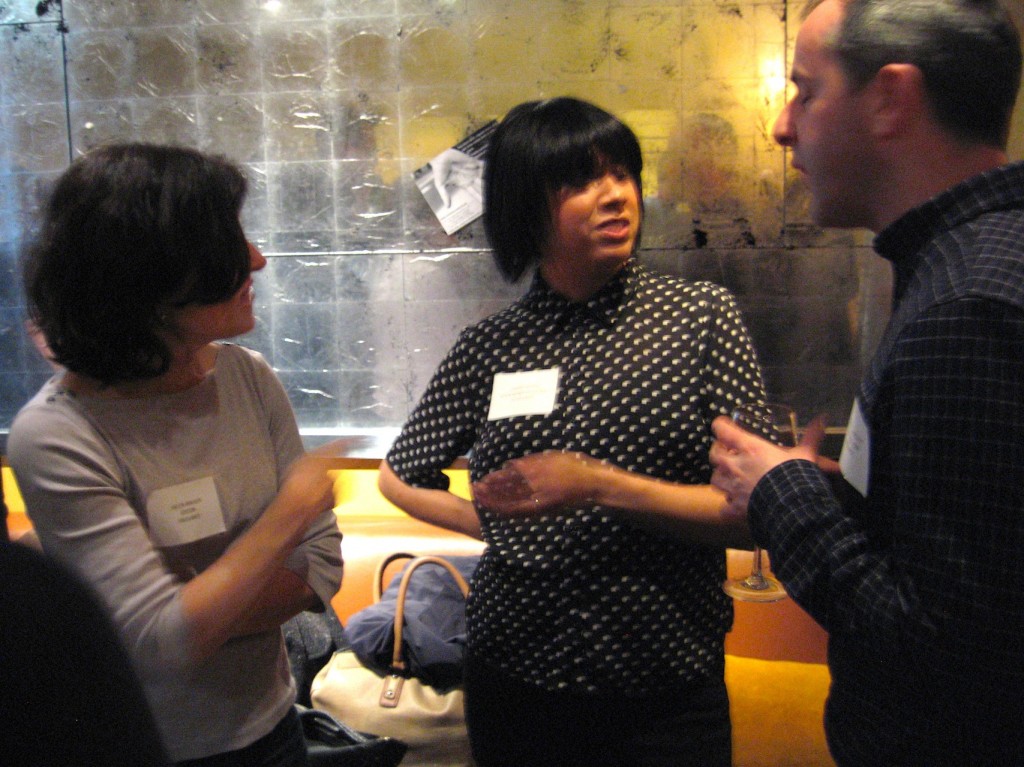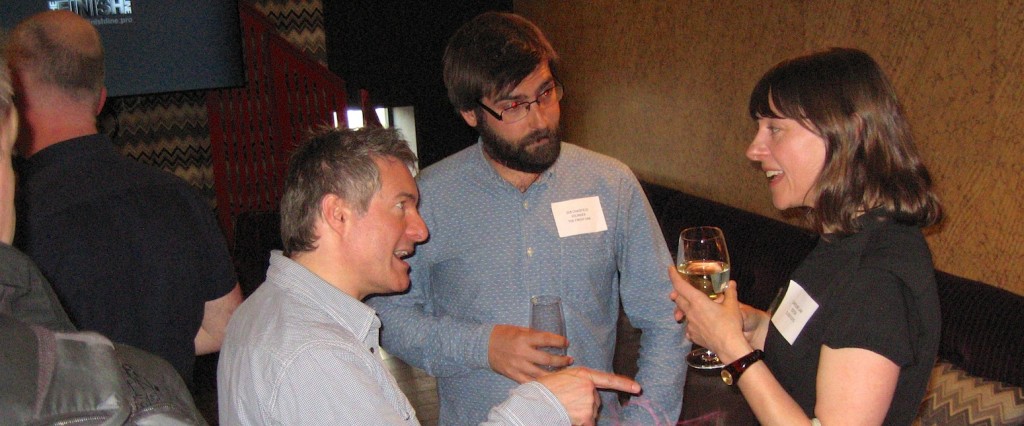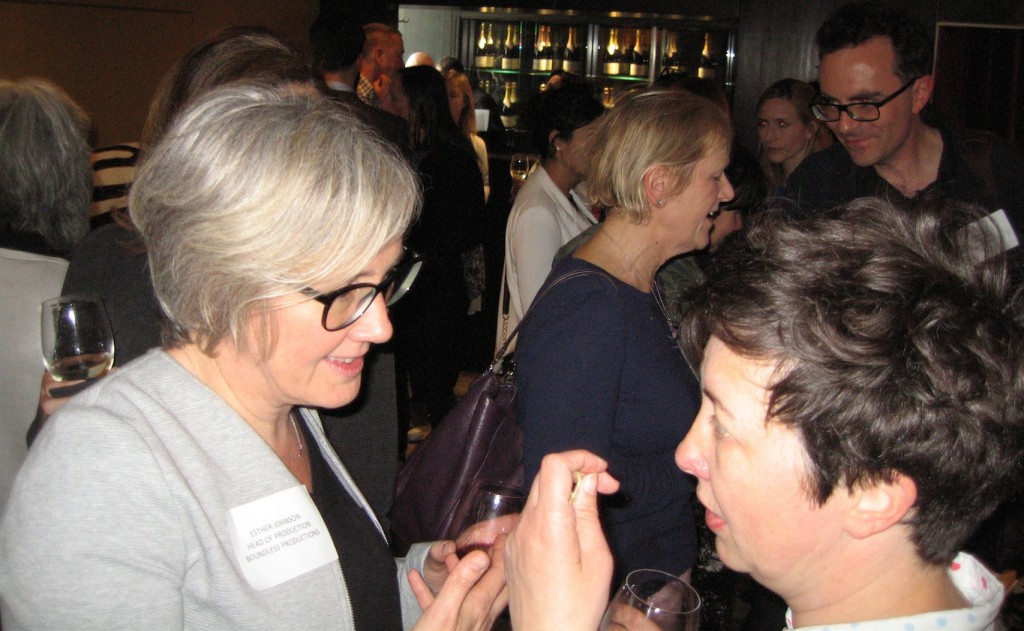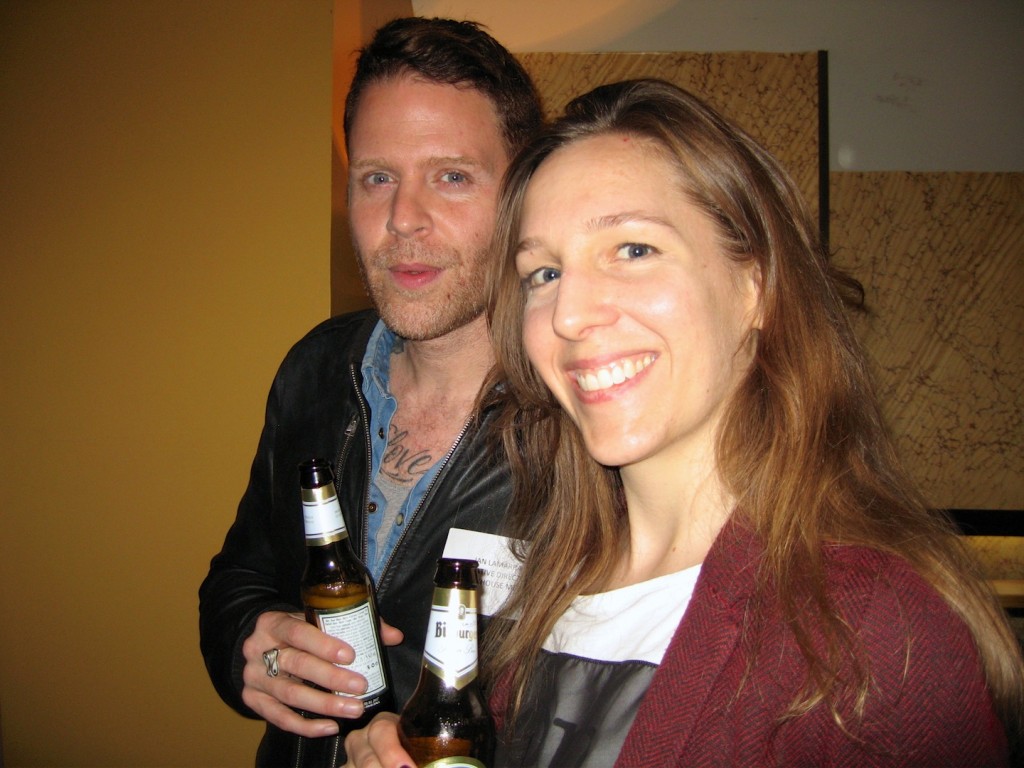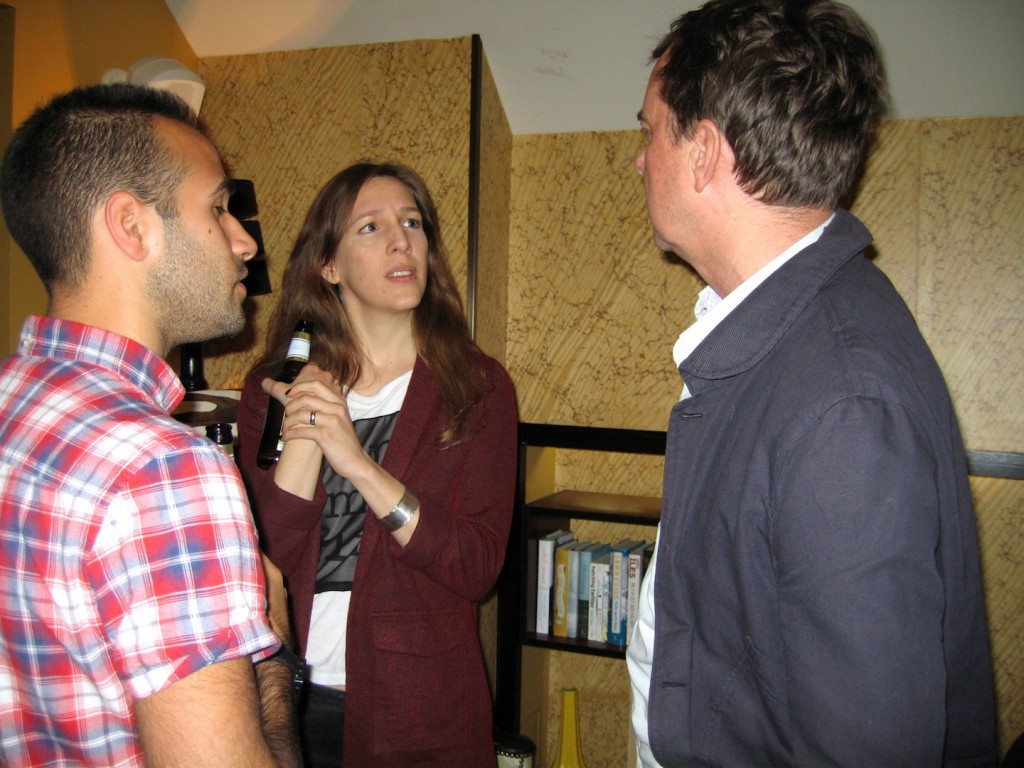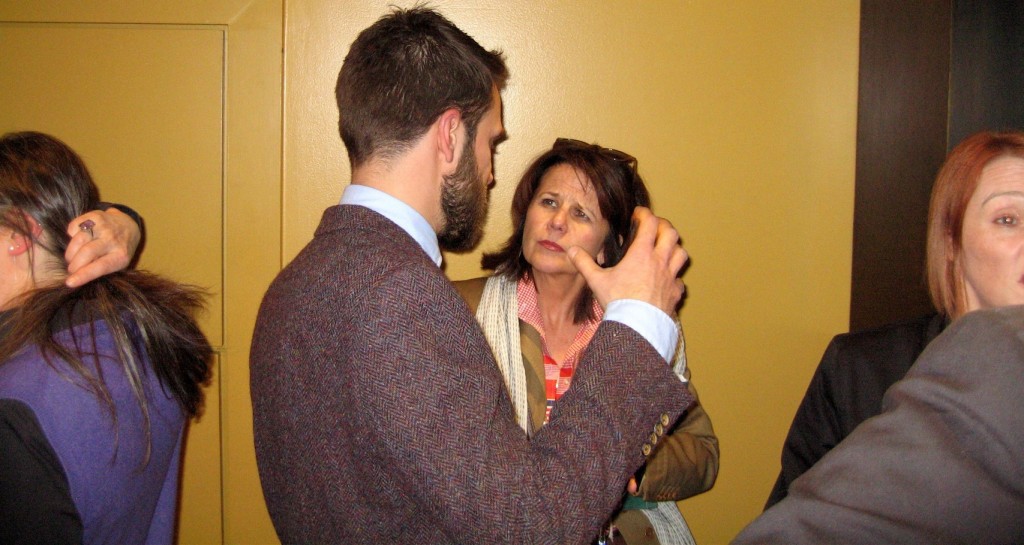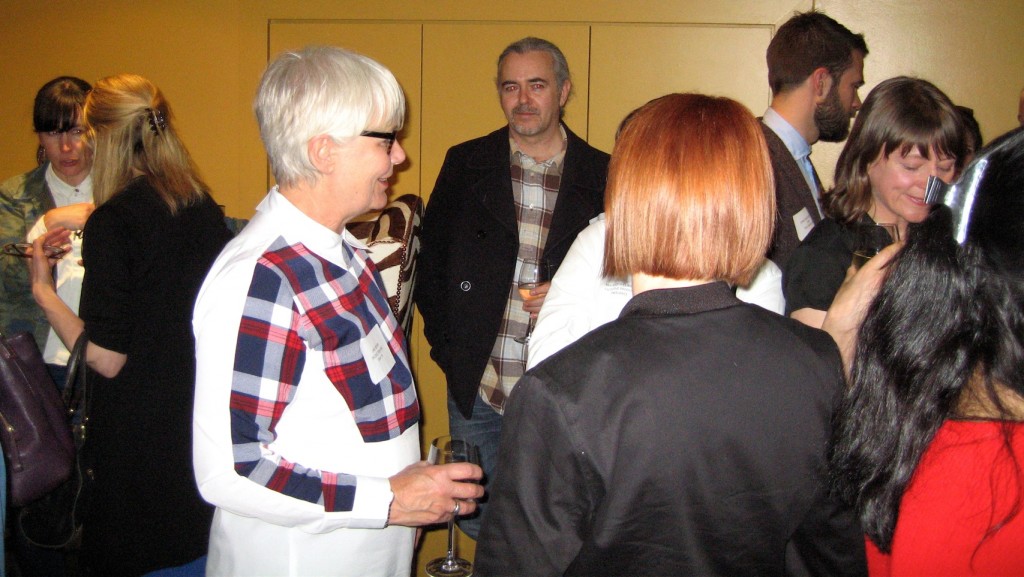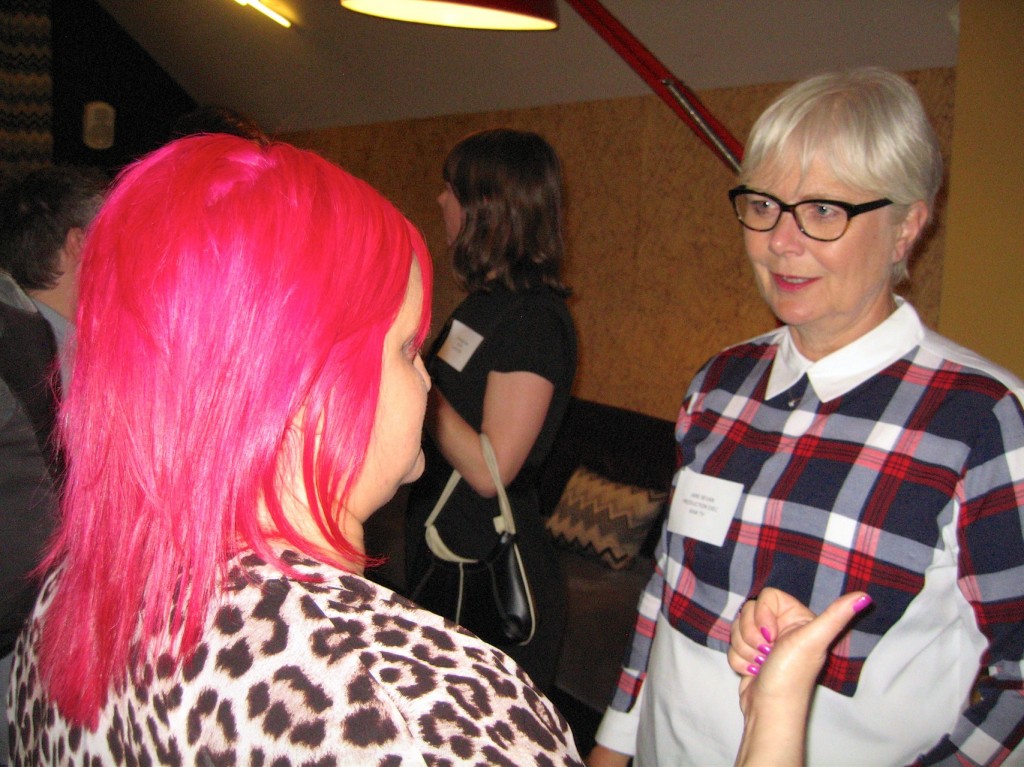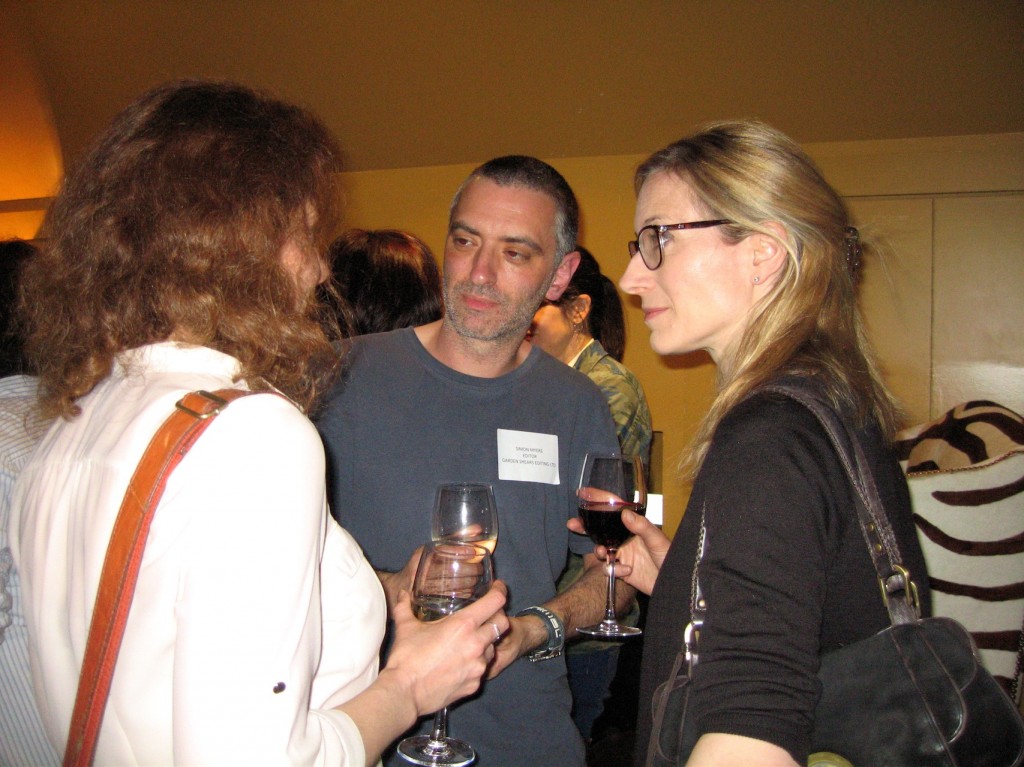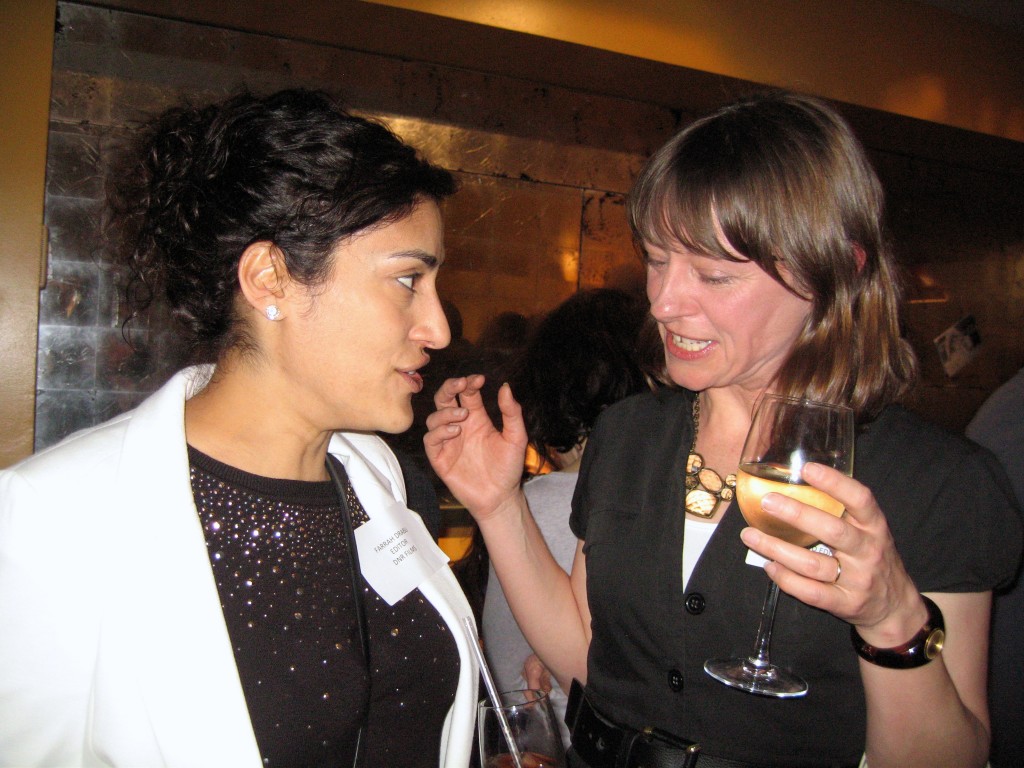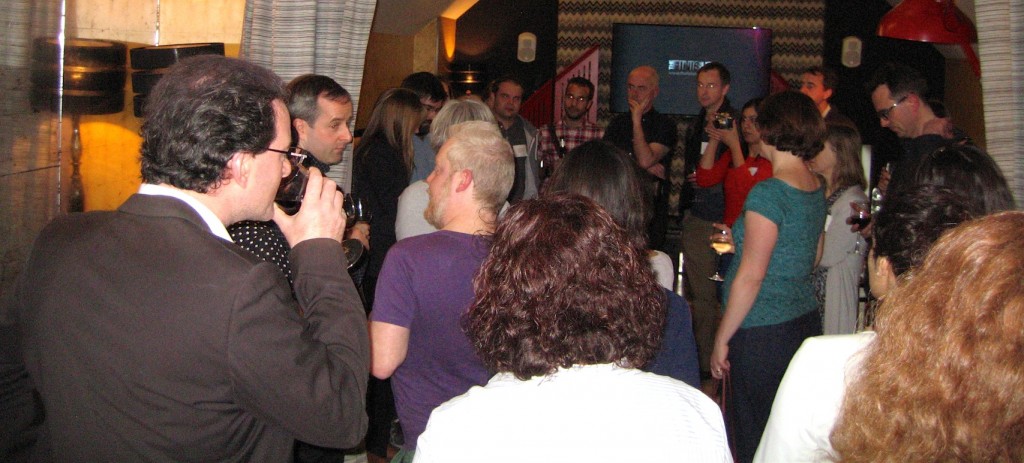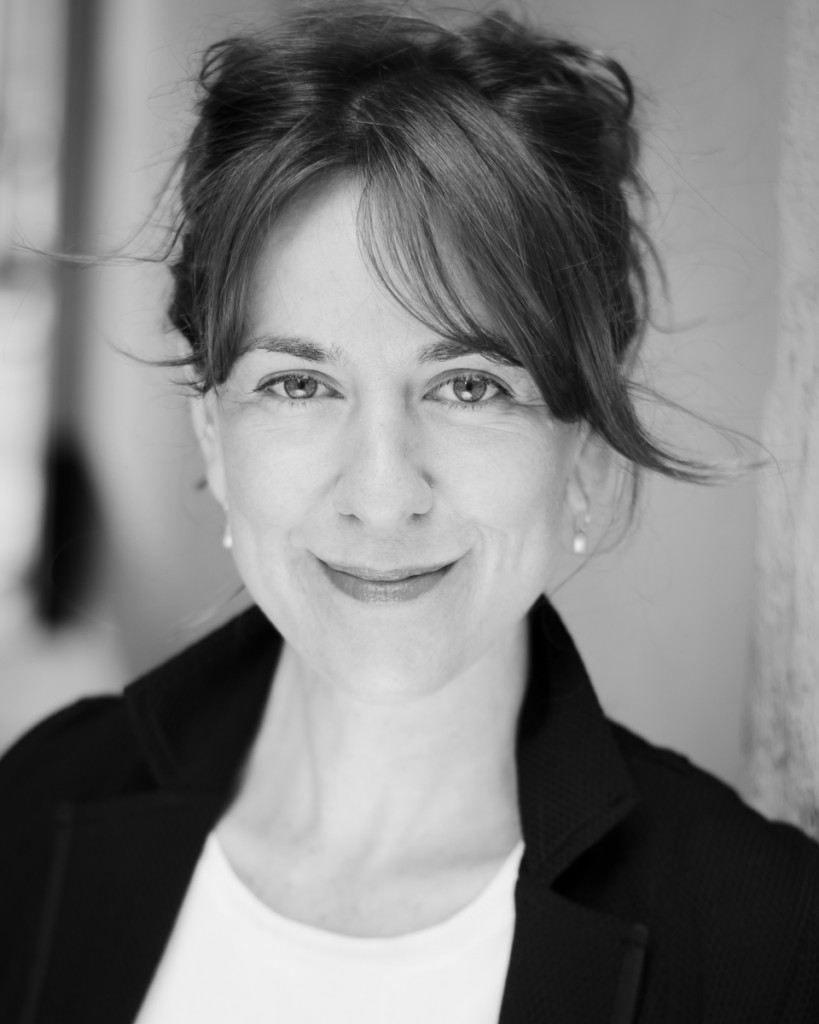Things I’ve learned…. by Series / Edit Producer Gaby Koppel.
As Media Parents features a job which could mean a step up for someone working in the regions http://www.mediaparents.co.uk/job-listings/7489/series-producer Gaby Koppel writes about getting on in TV by moving out of London.
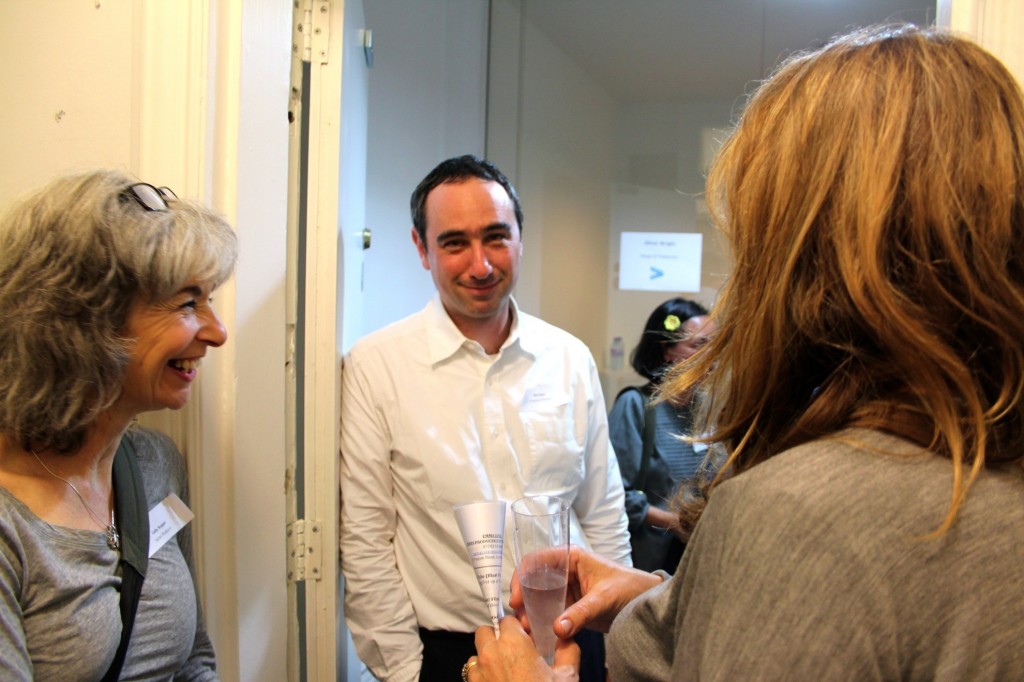
Gaby Koppel (left) at the Media Parents Arrow Media networking event. http://www.mediaparents.co.uk/freelancers/314/gaby-koppel
I was twenty-five and a fresh faced cub reporter straight from local newspapers when I first entered the hallowed portals of the BBC. Unfortunately, it wasn’t the corporation’s iconic Television Centre or even John Reith’s magnificent building in Portland Place but the rather more modest Yorkshire headquarters on Leeds’s Woodhouse Lane, where I was the latest recruit to the popular nightly magazine show Nationwide fronted by Sue Lawley and Hugh Scully. Two hundred miles away from the glamorous presenters, I was about to have a rude awakening to the realities of regional telly.
LESSON ONE: IF YOU ARE LOOKING FOR A FIRST JOB, OR A LEG UP, IN TELLY, TRY THE REGIONS. IT’S LESS COMPETITIVE AND IN THESE DAYS OF REGIONAL QUOTAS THERE ARE LOTS OF GREAT OPPORTUNITIES. YOU MAY HAVE TO TAKE SOME SHIT, BUT YOU GET THAT EVERYWHERE.
From what I’d seen on screen I expected that I’d be joining a large team and would be able to hide my total ignorance about this fabulous medium by sitting at the back and copying the others. Arriving punctually, I was whisked into the boss’s office for what promised to be a cosy welcome chat. It wasn’t.
Leaning back in his chair, a man with grey hair and a cable knit cardigan said: “This is BBC North, we are the regional representatives of the television news and our first responsibility is to serve them. We also put out a nightly television programme called Look North, that is our second priority. You, Nationwide, are third. Never forget that you are last, you are bottom of the pile. I don’t want to hear about you getting in the way of my staff.” With that, he showed me to my seat in the darkest corner of the newsroom and left me there saying “You better call London.”
That is how I learned that I was the sole representative of Nationwide in Leeds.
LESSON TWO: DON’T BE INTIMIDATED BY GRUMPY MIDDLE AGED MEN. YES, YOU SHOULD RESPECT THEM BECAUSE THEY HAVE THE ADVANTAGE OF EXPERIENCE AND KNOWLEDGE, BUT THAT DOESN’T GIVE THEM THE RIGHT TO TREAT YOU BADLY.
There was a phone on my desk but no list of numbers. After a few minutes, Brian the genteel continuity announcer who was sitting opposite mentioned something about ‘the circuit’ without explaining what it was. More time passed and somebody brought a small contraption to my desk that could have been designed by Heath Robinson – an aluminium box with a speaker and a switch, attached to which by cloth-covered cable was a set of Bakelite headphones. I swear it was the same kind of model they used at Bletchley Park during the war.
I listened in and could hear disembodied voices. This was the fabled circuit. Editors in London were talking to researchers in other regions with tags like Alison in Birmingham, Steve in Manchester, Bob in Bristol and Tina in Norwich as though the location was part of their identity. They ran through today’s programme menu and the forward planning, and discussed potential contributions to different stories from the regions. Finally, when it sounded as though everybody was about to go I summoned up the courage, pressed my button and said, “It’s G-G-Gaby in Leeds”. Silence. Then, even more worryingly, “We’ll want something from you on The Cod Wars, speak in a minute.” Panic.
All I could think was – FISH? For Godsake, we are in the middle of the country, I don’t even know where the nearest sea port is. What are they on?
As soon as the circuit finished I rushed over to the huge map on the newsroom wall and discovered that we were within striking distance of Grimsby and Hull. Armed with this information, I sat by my phone and waited for the rest of the shift, but it never rang. I was exhausted after a long day doing virtually nothing.
LESSON THREE: EVEN WHEN YOU THINK YOU AREN’T DOING ANYTHING, YOU ARE LEARNING, AND THAT APPLIES WHEN YOU HAVE LOADS OF EXPERIENCE AS MUCH AS WHEN YOU HAVE NONE. I HOPE TO AND TRY TO LEARN SOMETHING EVERY DAY I WORK ON A PRODUCTION. THE DAY YOU STOP LEARNING IS THE DAY TO LEAVE THE BUSINESS.
The following morning I waited for the circuit. I didn’t say anything apart from “Hello it’s Gaby here in Leeds” but I listened and took copious notes. One of the forward planning stories was strong on human interest, just the kind of social issue I was interested in, about ‘granny bashing’ by frazzled carers and family members.

Gaby Koppel and her daughter Sarah. Photograph Graeme Robertson. http://www.mediaparents.co.uk/freelancers/314/gaby-koppel
Here my journalism training kicked in. I got on the phone to all the branches of Age Concern in the area as well as a handful of local authorities, and within a few hours I had rustled up a solid case history of a woman caring for a mother suffering from early dementia who was willing to talk about feeling ‘close to the edge’, and crucially she was willing to say so on camera. I rang the producer who had been asking for contributions to say I had someone who would talk about wanting to hit her mother and she told me she’d like me to make a one-minute film with the woman. Hooray! I was ecstatic.
LESSON FOUR: YOU MAY THINK YOU KNOW NOTHING, BUT THAT’S JUST YOUR INSECURITY. AND IF YOU REALLY DON’T KNOW ANYTHING, COMMON SENSE CAN GET YOU QUITE FAR. BUT ONLY UP TO A POINT….
And then she uttered the classic line.
“Gaby, have you ever directed a film before?” I gulped. Film directors were people like John Ford and Francis Ford Coppola, not me. None of my names featured the word Ford and it wasn’t even an aspiration. It was a dream for some people maybe, but definitely not me. I wanted to sit at the back, remember?
“Er, n-n-no,” I stammered.
“OK, no probs. I’ll tell you what to do. Have you got a pencil?”
“Y-e-e-s.”
I waited what seemed like an age, prepared to take down the creative bible that would help me, a humble writer, forge a memorable piece of visual storytelling. My pen was poised.
“Get lots of cut-aways.”
“Yes, what else?”
“That’s all. Tell the cameraman to get lots of cutaways. Don’t bother to ask what they are, just make sure he gets lots.”
LESSON FIVE: BEST ADVICE FOR A FILM MAKER IS GET LOTS OF CUT-AWAYS. EVEN IF YOUR GOAL IS TO PRODUCE A SEAMLESS AUTEURED PIECE, THERE’S NOTHING LIKE HAVING A SAFETY NET. YOUR EDITOR WILL THANK YOU.
My one-minute masterpiece hit the air two nights later and I’d gone from zero to hero by the end of my first week in telly. A ‘hero-gram’ (slang from the pre wi-fi age: hero + telegram, in other words a note congratulating me on hitting the air so quickly) from programme editor Roger Bolton arrived promptly in the internal mail that kept the BBC going in the days before email. By now I’d been running on adrenalin for five solid days. I cried.
LESSON SIX: WHEN YOU ARE FINALLY THE BOSS, MAKE SURE YOU GIVE POSITIVE FEEDBACK REGULARLY TO ALL MEMBERS OF YOUR TEAM NO MATTER HOW LOWLY, EVEN IF THERE’S ROOM FOR IMPROVEMENT. PRAISE IS LIKE A DRUG, A GOOD ONE. THE BOOST PEOPLE GET FROM PRAISE WILL MAKE THEM FEEL VALUED, SPUR THEM ON TO GO THE EXTRA MILE, AND WILL PAY YOU BACK A HUNDRED TIMES AS WELL AS MOTIVATING YOUR TEAM TO LEARN MORE AND MOVE ON.
I’ve still got that hero-gram.
http://www.mediaparents.co.uk/freelancers/314/gaby-koppel



